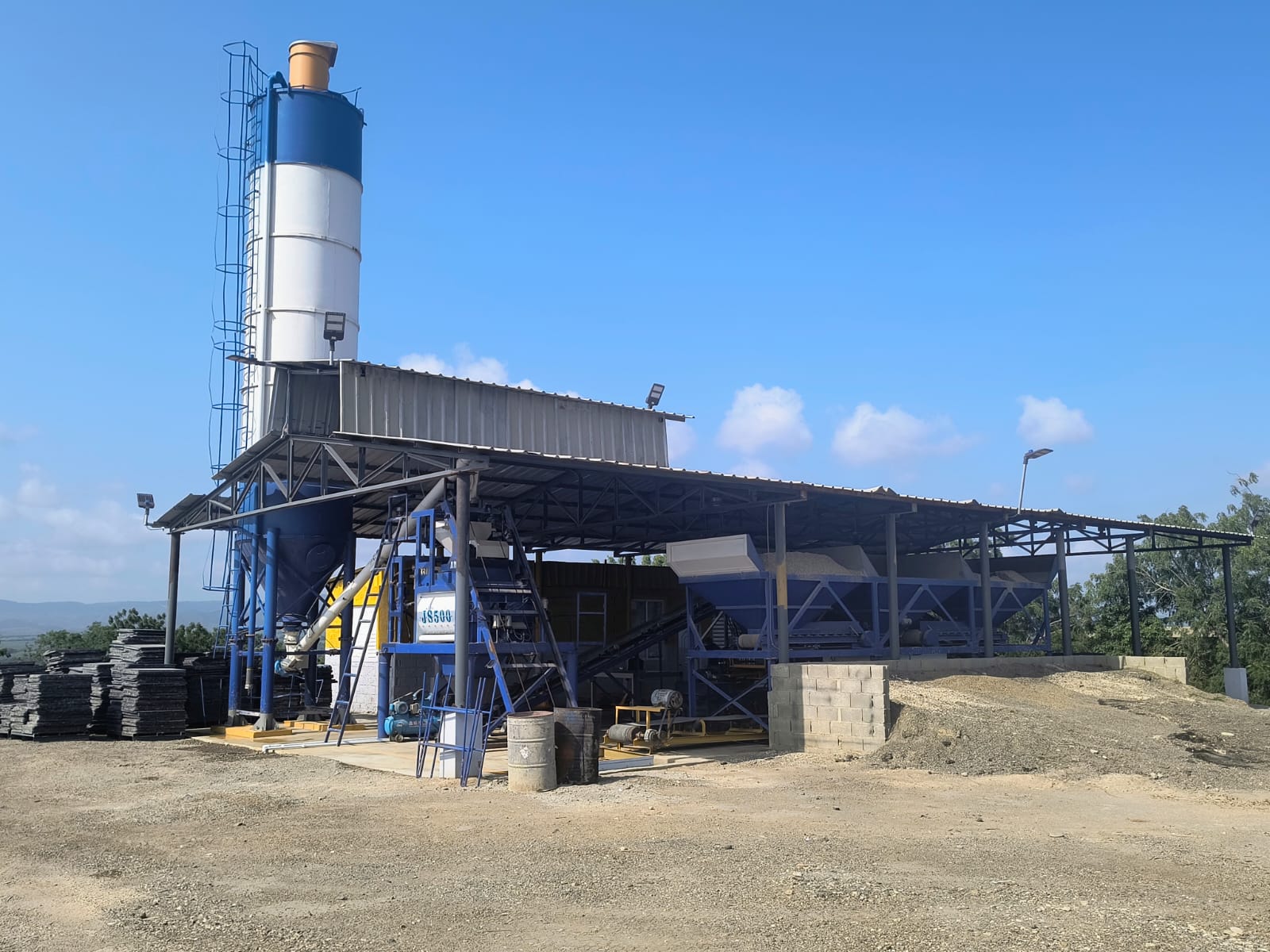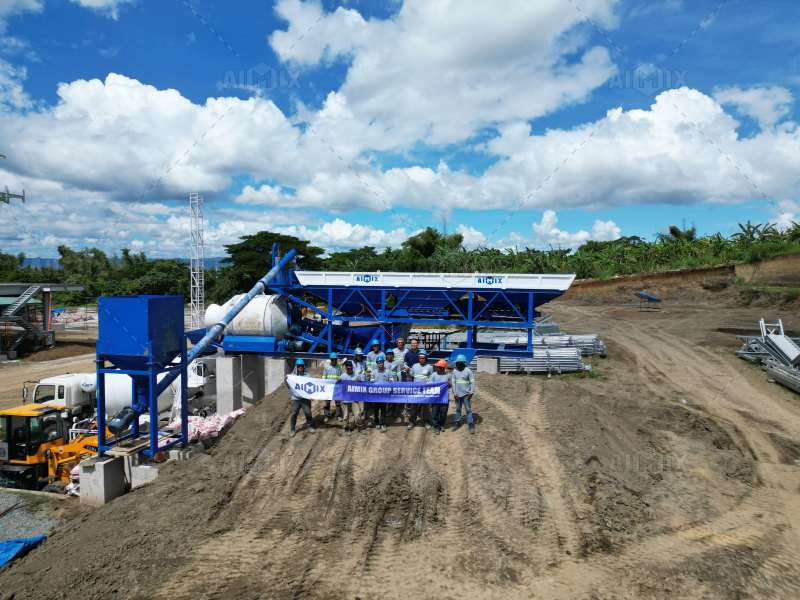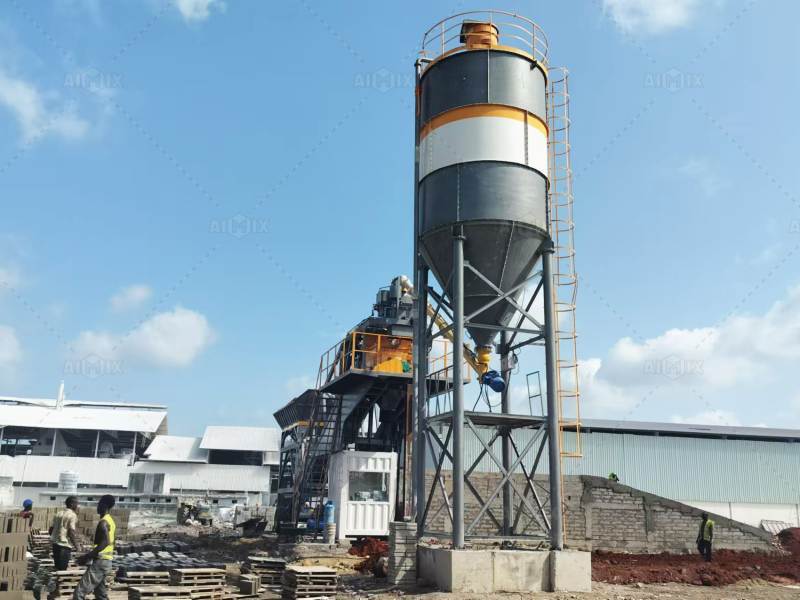As the global construction industry evolves to demand faster, leaner, and more flexible operations, mini concrete batching plants have emerged as essential assets, especially for small to mid-sized projects. These compact plants—often referred to as mobile concrete plants or small concrete batch plants—are not only cost-effective and space-saving but are now equipped with smart features that significantly boost performance. From IoT integration to advanced control systems, modern mini batching plants offer cutting-edge technologies once exclusive to large-scale operations.
In this article, we’ll explore how mini concrete batching plant has embraced innovation to enhance productivity and reduce operating costs, and why concrete batch plant manufacturers are heavily investing in intelligent features.

The Rise of Smart Mini Batching Plants
Mini batching plants have traditionally served niche construction needs—such as residential projects, road repairs, or rural construction—due to their portability and ease of setup. However, with rising labor costs, tight schedules, and demand for consistent concrete quality, smart technologies are now being integrated even in compact units.
These advancements are not just improving output quality but also helping operators manage plant operations with greater accuracy and less manpower.
1. IoT Integration: Connecting Plants to Performance
Internet of Things (IoT) technology is reshaping how batching plants operate. Even small concrete batch plant now feature sensors and communication modules that gather and transmit real-time data on mixing cycles, temperature, humidity, aggregate levels, and energy consumption.
Key Benefits:
Remote Monitoring: Operators can check plant performance via smartphones or tablets, no matter the location.
Predictive Maintenance: Sensors can detect unusual patterns like motor overheating or irregular mixer performance, helping avoid breakdowns.
Data-Driven Decisions: IoT enables operators to fine-tune mix ratios and schedules based on real-time data.
This technology is especially valuable in mobile concrete plant deployed in remote or rural areas where on-site management is limited. The ability to monitor and control operations from a central hub significantly increases plant reliability and output efficiency.
2. Advanced Control Systems for Precise Operations
Modern control systems used in mini concrete batching plants offer far more than simple start/stop commands. PLC-based (Programmable Logic Controller) and SCADA (Supervisory Control and Data Acquisition) systems are now commonplace in compact plants.
Smart Control Features:
Automatic Material Weighing and Mixing: Precise ingredient control ensures consistent mix quality every time.
Batch Recording: Each batch is logged digitally, aiding quality control and regulatory compliance.
Touchscreen Interfaces: User-friendly dashboards allow even less-experienced operators to run the plant efficiently.
These advanced systems provide accuracy comparable to larger stationary plants, helping small concrete batch plant owners meet the same performance standards required in commercial construction.

3. Energy and Resource Efficiency
Efficiency is one of the top concerns for project managers. Newer mini batching plants are being designed to consume less power and water while optimizing material use. IoT and control systems work together to monitor energy use and prevent overmixing or waste.
Efficiency Examples:
On-Demand Operation: The plant activates only when needed, reducing idle power consumption.
Optimized Mixing Cycles: Mixers automatically adjust duration based on batch size and material type.
Minimal Raw Material Wastage: Integrated sensors prevent spillage or inaccurate dosing.
For mobile projects where power sources may be limited, energy-efficient design is a critical advantage of modern mobile concrete plant.
4. Integration with Mobile Apps and Cloud Platforms
Smart mini concrete batching plants are increasingly cloud-connected, enabling seamless integration with inventory management, logistics, and fleet tracking systems. Data such as daily output, cement stock levels, and delivery schedules can now be accessed from mobile apps.
Benefits to Operators:
Instant alerts on production delays or material shortages
Simplified documentation and reporting
Improved coordination with delivery trucks and job sites
This digitization is proving especially useful for contractors running multiple small plants across locations, offering a bird’s-eye view of their operations at all times.
5. Customization by Leading Concrete Batch Plant Manufacturers
Top-tier concrete batch plant manufacturers are now offering modular, customizable mini plants equipped with smart features. These units are often factory-tested and prewired, allowing quick installation and immediate productivity.
Key Manufacturer Innovations:
Pre-installed Software Packages: Including mix design templates and remote diagnostics
Expandable Modules: For adding silos, mixers, or automation units as project demands grow
Mobile Skid-Mounted Designs: Easy relocation from site to site without extensive dismantling
China, India, and Germany are among the leading countries producing technologically advanced small concrete batch plants with growing export markets.

6. Market Demand and Use Cases
The demand for smart mini batching plants is increasing due to urban infrastructure projects, rural road development, and remote housing initiatives. Contractors prefer mobile concrete plants due to their quick setup time, lower initial investment, and now—thanks to smart tech—competitive performance.
Mini plants are especially beneficial in:
Bridge and tunnel projects
Interior city construction where space is limited
Projects requiring frequent site shifts
As more municipalities and private developers demand environmentally friendly and tech-integrated construction processes, these smart mini batching plants will become even more prevalent.
Conclusion
Mini concrete batching plants have moved beyond being just compact alternatives. With the integration of IoT, advanced control systems, and energy-saving designs, they are now smart, powerful solutions capable of meeting modern construction challenges.
Whether you’re a contractor seeking flexibility, a startup preparing your concrete batch plant business plan, or one of many concrete batch plant manufacturers adapting to market demands, embracing smart mini plant technology is a step toward more efficient, sustainable, and profitable operations.
